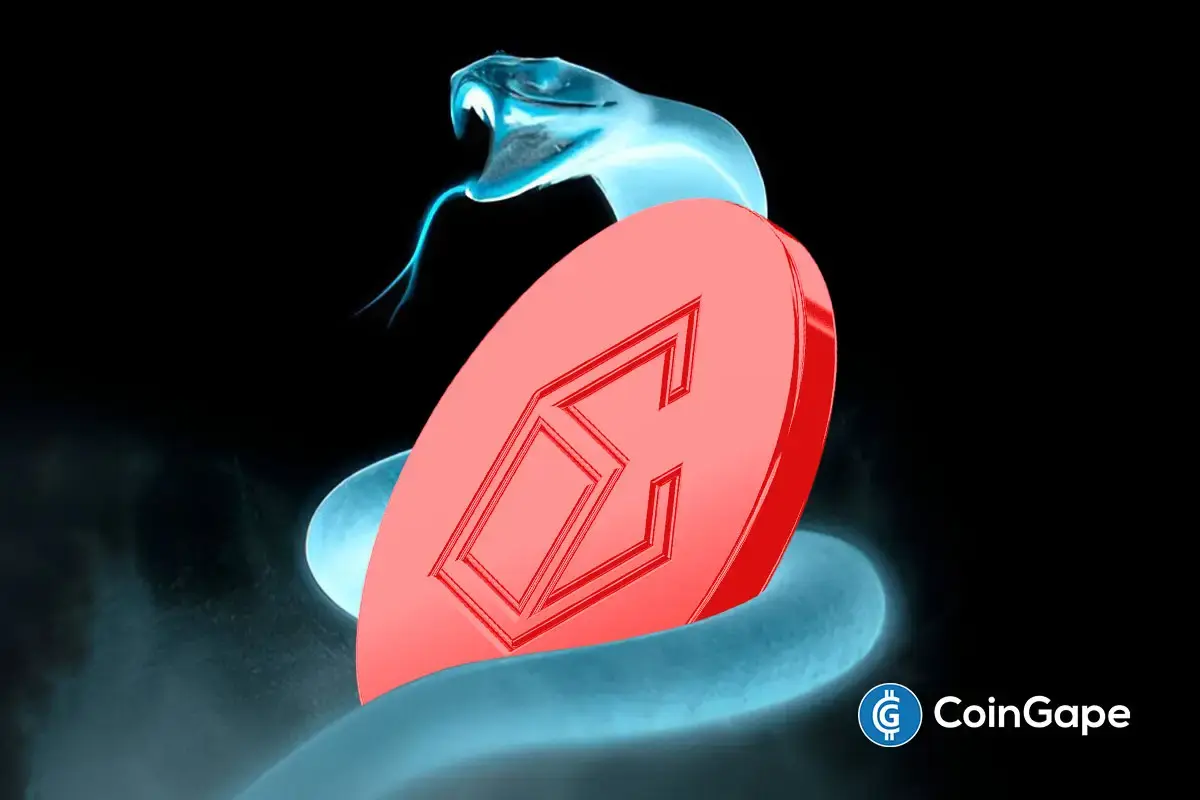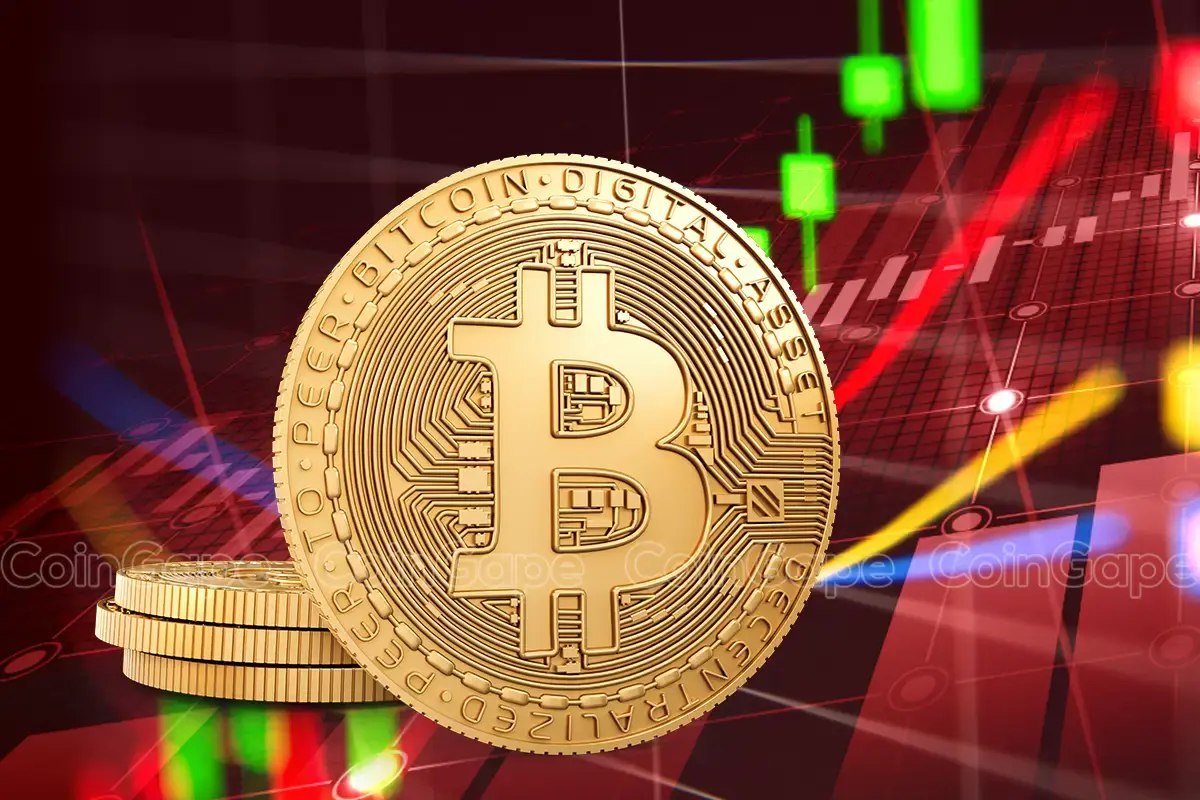24/7 Cryptocurrency News
How PEPE Token Helped a Crypto Investor Earn an Incredible $11.7M?
Published
3 months agoon
By
admin
The PEPE token has taken the lead in gains among the meme coins for years now. Although it had its share of struggles, the Pepe coin price performance has equipped crypto investors with heavy returns. One such investor made $11.7M recently, showcasing the token’s high profit potential. Let’s discuss what’s happening.
Crypto Investor Made $11.7M With PEPE Token’s Downtrend
According to Lookonchain, a popular analytics page on X, a crypto investor made incredibly heavy returns in Pepe Coin. Interestingly, all this happened when the PEPE token was in a dip, shocking every reader. The crypto user has been holding millions of this frog-themed coin and dumped them when the PEPE price began to decline after it hit the ATH of $0.00002825 around three weeks ago.
With that, the crypto investor made $11.7M in profits, which could have been higher if he had not missed the ATH. Regardless, Pepe Coin’s price performance has helped investors make heavy returns. Interestingly, he is still busy accumulating more PEPE. In the last week alone, he has spent $24.5M to buy 1.42T PEPE, continuing his profit-making journey with this frog-theme meme coin.


Interestingly, this is not the first person who has made heavy returns with PEPE. Another PEPE trader made millions after turning $70 into $7M over the PEPE’s impressive price performance.
PEPE Token’s Bullish Returns, Price Surged 4% Today
Pepe Coin has become one of the most profitable meme coins ever since the beginning of the year due to its constant surges. With that, he achieved multiple all-time highs within the year, and the most recent was just 19 days ago. However, a downtrend began right after that, pushing the PEPE price 35% away, currently trading at $0.00001829 after a 4% surge in the last 24 hours.
Interestingly, this happened with the rising investor interest. Earlier, the PEPE’s trading volume peaked at $2.13 billion, indicating high investor activity and whale buying. Furthermore, the technical indicators show a strong buying zone, which could propel the PEPE price higher and out of this slump.
What’s In There For You?
Considering meme-themed cryptocurrency performance this year, many crypto investors turned bullish, with high returns. As a result, 2024 has become the year of meme coins, which users can consider buying after running proper technical analysis and market research. In today’s case, Pepe Coin is gaining strength on the charts after hitting ATH just a few weeks ago. Now, it has to see if the PEPE token will continue to benefit investors or if the PEPE price will struggle with a market dip.
Pooja Khardia
With a deep-seated passion for reading and five years of experience in content writing, Pooja is now focused on crafting trending content about cryptocurrency market.
As a dedicated crypto journalist, Pooja is constantly seeking out trending topics and informative statistics to create compelling pieces for crypto enthusiasts. Staying abreast of the latest trends and advancements in the field is an integral part of her daily routine, fueling a commitment to delivering timely and insightful coverage
Disclaimer: The presented content may include the personal opinion of the author and is subject to market condition. Do your market research before investing in cryptocurrencies. The author or the publication does not hold any responsibility for your personal financial loss.
Source link
You may like


Will new US SEC rules bring crypto companies onshore?


Net Taker Volume on Binance Hits Yearly High Amid Bitcoin Price Consolidation


Eric Trump Joins Metaplanet’s Board Of Advisers


Bitcoin Primed for Major Moves As Macroeconomic Conditions Ease, Says Analyst Jamie Coutts – Here’s His Outlook


Themes ETFs exec on new 2X Coinbase fund: ‘We believe as the Bitcoin tide rises, it will lift all crypto boats’


Ethena’s USDe Stablecoin Sales Blocked by German Regulator Over ‘Serious Deficiencies’
24/7 Cryptocurrency News
Is Ethena Price At Risk? Market Maker Offloads $10M ENA Raising Concerns
Published
7 hours agoon
March 22, 2025By
admin
Ethena price remains concerningly eyed by crypto market participants against the backdrop of a severe bearish trajectory. ENA erased nearly 4% in the past 24 hours, in sync with a renowned market maker dumping over $10 million worth of tokens. Thus, traders and investors anticipate additional short-term volatility in the coin, whilst it recently faced rejection at a key resistance of $0.48.
Ethena Price Gains Bearish Momentum, Here’s Why
On-chain data from Arkham Intelligence on March 22 signaled that market maker Amber Group deposited $10.35 million worth of ENA to Binance. Out of the deposits, $2.5 million worth of tokens were acquired from the same crypto exchange two weeks ago. This accumulation took place at an average price of $0.3979.
On the other hand, Amber Group received $7.85 million worth of coins from the Ethena Claim address. These tokens were received between April 2024 and July 2024.
For context, the market maker’s massive dump to Binance impacts a crypto’s supply dynamics. In turn, market participants expect short-term volatility in price. However, speculations of a bolstered movement also prevail as this endeavor will increase liquidity and trading volumes, thereby magnetizing investors.
Ethena Token Unlocks: Another Vital Barrier For Price?
Simultaneously, ENA tokenomics faces additional heat amid massive token unlocks recorded this month. Notably, Cryptorank’s data flagged 2.06 billion coins, worth 13.9% of the total supply, unlocked on March 5.
Meanwhile, 94.19 million coins, worth 0.63% of the asset’s total supply, were unlocked on March 2. These unlocks substantially increase the asset’s market supply, negatively impacting demand and price sentiments.
Another massive unlock of 94.19 million coins is set to occur on April 2. Further, 171.85 million tokens will be unlocked on April 5. As a result, traders and investors reflect highly concerning sentiments surrounding Ethena price action ahead as the supply inflates.
How Is The Crypto Delivering As The Month Ends?
At the time of reporting, Ethena price crashed nearly 4% and exchanged hands at $0.3581. The coin bottomed and peaked at $0.3497 and $0.3763 in the past 24 hours. Notably, the waning price action comes in sync with Amber Group’s massive dump to the top crypto exchange.
Whereas, the weekly and monthly charts show a dip of 1% and 11%, respectively. The broader slumping action falls in line with the massive token unlocks mentioned above.
Renowned market trader and analyst Sjuul/AltCryptoGems took to X, revealing that ENA again faced crucial resistance at $0.48, slamming the chances for a pump ahead. “If bulls fail to defend this demand, it would be a pretty bad sign,” the analyst concluded amid bearish dynamics taking over.
Additionally, an Ethena price prediction by CoinGape indicated that the crypto’s 3-month bias indicator is tilting in favor of bears. This has further pushed traders and investors to take a cautious trading approach on the token.
Coingape Staff
CoinGape comprises an experienced team of native content writers and editors working round the clock to cover news globally and present news as a fact rather than an opinion. CoinGape writers and reporters contributed to this article.
Disclaimer: The presented content may include the personal opinion of the author and is subject to market condition. Do your market research before investing in cryptocurrencies. The author or the publication does not hold any responsibility for your personal financial loss.
Source link
24/7 Cryptocurrency News
Is Bitcoin Price Bottom In? Key Metrics Show rally Is Likely
Published
15 hours agoon
March 21, 2025By
admin
Bitcoin (BTC) price volatility is slowing down as the coin’s capitulation continues. At the time of writing, Bitcoin’s price was changing hands for $84,278.83 as it pared off the losses accrued in earlier trading. At this pace, the question now hinges on whether BTC can form sustainable support at the $84,000 price mark or whether further drawdown lies ahead.
Core Bitcoin Price Metric to Watch
According to Glassnode data, BTC Short-Term Holders (STH) are under increasing pressure. This group’s unrealized losses have surged, pushing many STH coins into losses. As revealed, their holdings are now nearing the two-standard deviation threshold.
Despite this outlook, the data platform hinted that losses remain within historical bull market bounds. Specifically, it noted that these losses are less severe than the May 2021 sell-off from the all-time high. Glassnode said the rolling 30-day losses for STH have topped $7 billion. It confirmed that “this remains well below prior capitulation events, such as the $19.8B and $20.7B losses in 2021-22.”
BTC price jumped to an ATH above $109,000 in January but has since dropped by 22.79%. While experts predicted a drop of over 35%, the limited loss from holders can form a good rebound basis.
BTC Price Bottom In, Here Are Triggers for Rally
Over the past week, Bitcoin has rallied within very tight price ranges, from a low of $81,300 to a high of $87,320. Some market observers believe the coin has attained its floor price and might be set for a rebound.
While firms like Strategy have kept Bitcoin purchase plans alive with Strife’s perpetual stock offering, the Global Money Supply M2 also lays a positive basis for growth. With the current outlook, the projection that the $83,00 level is the BTC price floor is resounding among analysts.
The shift in regulation and the backing of Bitcoin by President Donald Trump creates a tailwind for the coin’s proponents. At the Digital Asset Summit earlier this week, President Trump reiterated the plan to make the US the crypto capital of the world.
Several government agencies have shifted their policies in this regard, which might attract investors in the long term.
How High Can Bitcoin Valuation Rise?
Despite the slowdown in growth in recent weeks, many market leaders are still confident in the coin’s prospects. As reported earlier by CoinGape, Bitwise CIO Matt Hougan maintained the price target of $1 million by 2029. He cited a longer-term reaction to macroeconomic uncertainties as the basis for his prediction.
While this Bitcoin price prediction appears lofty, others believe Bitcoin may cross $200,000 once the bull rally returns. With spot Bitcoin ETF hype and other growing institutional adoption, BTC price has an arguably bright future.
Godfrey Benjamin
Benjamin Godfrey is a blockchain enthusiast and journalists who relish writing about the real life applications of blockchain technology and innovations to drive general acceptance and worldwide integration of the emerging technology. His desires to educate people about cryptocurrencies inspires his contributions to renowned blockchain based media and sites. Benjamin Godfrey is a lover of sports and agriculture.
Disclaimer: The presented content may include the personal opinion of the author and is subject to market condition. Do your market research before investing in cryptocurrencies. The author or the publication does not hold any responsibility for your personal financial loss.
Source link
24/7 Cryptocurrency News
Ethereum Price Eyes 50% Drop Amid Heavy ETH Whale Profit Booking
Published
1 day agoon
March 21, 2025By
admin
Despite the recent attempt by the bulls, Ethereum price has struggled to regain past $2,000 levels recently. Market analysts believe that there’s enough possibility that ETH could see another 50% drop to $1,000 as some early ETH whales resolve to heavy profit booking.
Ethereum Price Struggles to Regain $2,000
Amid the overall market uncertainty, Ethereum continues to face some selling pressure as bulls fail to regain control over $2,000 levels. Crypto analyst Ali Martinez has stated that investors should maintain caution before building fresh positions in ETH.
“Ethereum hits $2,000. Cool, but zoom out! The big picture is brewing something bigger,” Martinez stated. As per the below chart shared by Martinez, if bulls fail to hold the Ethereum price above $2,050, it risks further falling to the next support at $1,500, and even below all the way to $1,095 levels, per his recent ETH price prediction.


As of press time, the ETH price is trading 2.26% down at $1,973 with its daily trading volume dropping over 40% to $12.21 billion. Furthermore, the ETH futures open interest has also dropped 4% under $20 billion. A recent ETH price prediction also hints that the crypto will hover near $2K for some time ahead.
Early ETH Whale Sells 34,125 Coins
Blockchain analytics platform SpotonChain reported that a major ETH whale appears to have secured a massive profit of $65.66 million, marking a staggering 4,156% return on investment. The whale’s holdings date back to March 2017 when they acquired the ETH from platforms like Changelly, Bitfinex, ShapeShift, and Binance at an average cost of just $46.3 per token.
The whale, identified as “0x086,” deposited its entire ETH holdings of 34,125 ETH to crypto exchange Coinbase a few hours ago. This transaction happened at an average Ethereum price of $1,970.


Currently, the ETH whale activity remains mixed as some big players are moving it from exchange and moving it to staking to earn the extra yield. These are specifically the long-term ETH holders holding with diamond hands.
BlackRock Explains Why Ethereum ETFs Are Struggling
Despite Ethereum price eyeing a relief rally past $2,000, there’s no major relief for spot Ethereum ETFs. The outflows have continued through March 2025 so far, highlighting a major drop in institutional sentiment.
While speaking at the Digital Asset Summit (DAS) in New York City, BlackRock’s head of digital assets Robbie Mitchnick explained the real reason behind this fall. Mitchnick suggested that the ETFs could have performed better if they had included staking, noting that the absence of this feature made the launch “less perfect.”
“A staking yield is a meaningful part of how you can generate investment return in this space. And all the [Ether] ETFs, of course, at launch did not have staking,” he said.
On Thursday, crypto asset manager Bitwise filed a proposal to introduce staking on Ethereum ETFs. The New York Stock Exchange (NYSE) has proposed amendments to allow the listing and trading of shares for the Bitwise Ethereum ETF, incorporating staking capabilities.
Bhushan Akolkar
Bhushan is a FinTech enthusiast with a keen understanding of financial markets. His interest in economics and finance has led him to focus on emerging Blockchain technology and cryptocurrency markets. He is committed to continuous learning and stays motivated by sharing the knowledge he acquires. In his free time, Bhushan enjoys reading thriller fiction novels and occasionally explores his culinary skills.
Disclaimer: The presented content may include the personal opinion of the author and is subject to market condition. Do your market research before investing in cryptocurrencies. The author or the publication does not hold any responsibility for your personal financial loss.
Source link
The SEC Resets Its Crypto Relationship

Will new US SEC rules bring crypto companies onshore?

Net Taker Volume on Binance Hits Yearly High Amid Bitcoin Price Consolidation

Eric Trump Joins Metaplanet’s Board Of Advisers

Bitcoin Primed for Major Moves As Macroeconomic Conditions Ease, Says Analyst Jamie Coutts – Here’s His Outlook

Themes ETFs exec on new 2X Coinbase fund: ‘We believe as the Bitcoin tide rises, it will lift all crypto boats’

Ethena’s USDe Stablecoin Sales Blocked by German Regulator Over ‘Serious Deficiencies’

Is Ethena Price At Risk? Market Maker Offloads $10M ENA Raising Concerns
Coinbase Could Be Near Multi-Billion Dollar Deal for Deribit: Bloomberg

Tether eyes Big Four firm for its first full financial audit: Report
Why Current ‘Boredom Phase’ Could Trigger Epic Rally

US Treasury Removes Tornado Cash From OFAC Sanctions List

21,899 Bank Customers Affected As US Lender Suffers Cybersecurity Breach, Hacker Taps Social Security Numbers and Other Sensitive Information

Tether eyeing ‘Big Four’ firm for reserve audit: CEO

Solo Bitcoin Miner Hits the Jackpot, Scoring $266K Reward

Arthur Hayes, Murad’s Prediction For Meme Coins, AI & DeFi Coins For 2025

Expert Sees Bitcoin Dipping To $50K While Bullish Signs Persist

Aptos Leverages Chainlink To Enhance Scalability and Data Access

Bitcoin Could Rally to $80,000 on the Eve of US Elections

Sonic Now ‘Golden Standard’ of Layer-2s After Scaling Transactions to 16,000+ per Second, Says Andre Cronje

Institutional Investors Go All In on Crypto as 57% Plan to Boost Allocations as Bull Run Heats Up, Sygnum Survey Reveals

Crypto’s Big Trump Gamble Is Risky

Ripple-SEC Case Ends, But These 3 Rivals Could Jump 500x

Has The Bitcoin Price Already Peaked?

A16z-backed Espresso announces mainnet launch of core product

Xmas Altcoin Rally Insights by BNM Agent I

Blockchain groups challenge new broker reporting rule

Trump’s Coin Is About As Revolutionary As OneCoin

The Future of Bitcoin: Scaling, Institutional Adoption, and Strategic Reserves with Rich Rines

Is $200,000 a Realistic Bitcoin Price Target for This Cycle?
Trending

 24/7 Cryptocurrency News4 months ago
24/7 Cryptocurrency News4 months agoArthur Hayes, Murad’s Prediction For Meme Coins, AI & DeFi Coins For 2025

 Bitcoin2 months ago
Bitcoin2 months agoExpert Sees Bitcoin Dipping To $50K While Bullish Signs Persist

 24/7 Cryptocurrency News2 months ago
24/7 Cryptocurrency News2 months agoAptos Leverages Chainlink To Enhance Scalability and Data Access

 Bitcoin5 months ago
Bitcoin5 months agoBitcoin Could Rally to $80,000 on the Eve of US Elections

 Altcoins2 months ago
Altcoins2 months agoSonic Now ‘Golden Standard’ of Layer-2s After Scaling Transactions to 16,000+ per Second, Says Andre Cronje

 Bitcoin4 months ago
Bitcoin4 months agoInstitutional Investors Go All In on Crypto as 57% Plan to Boost Allocations as Bull Run Heats Up, Sygnum Survey Reveals

 Opinion5 months ago
Opinion5 months agoCrypto’s Big Trump Gamble Is Risky

 Price analysis5 months ago
Price analysis5 months agoRipple-SEC Case Ends, But These 3 Rivals Could Jump 500x




✓ Share: